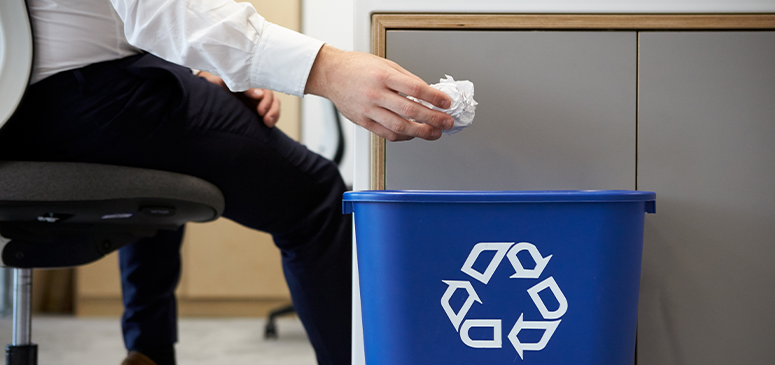Sustainability isn’t just something we can practice at home. We can go green anywhere—including the workplace!
As more of us work to apply sustainable practices in our daily lives, there are many simple and practical steps we can take to live in a more environmentally conscious way at work. From changing how we commute to using reusable food storage, every action affects the way we impact the environment.
Here are five easy tips for being more sustainable in the workplace:
Prioritize Recycling
It’s so easy to get caught up in work-related tasks that we forget to recycle at the office. Make recycling a priority by designating a specific spot to set aside recyclable material that can be properly disposed of. If recycling at your workplace isn’t an option, try designating a communal space where other coworkers can place their recyclable materials to dispose of later—either at work, or at home!
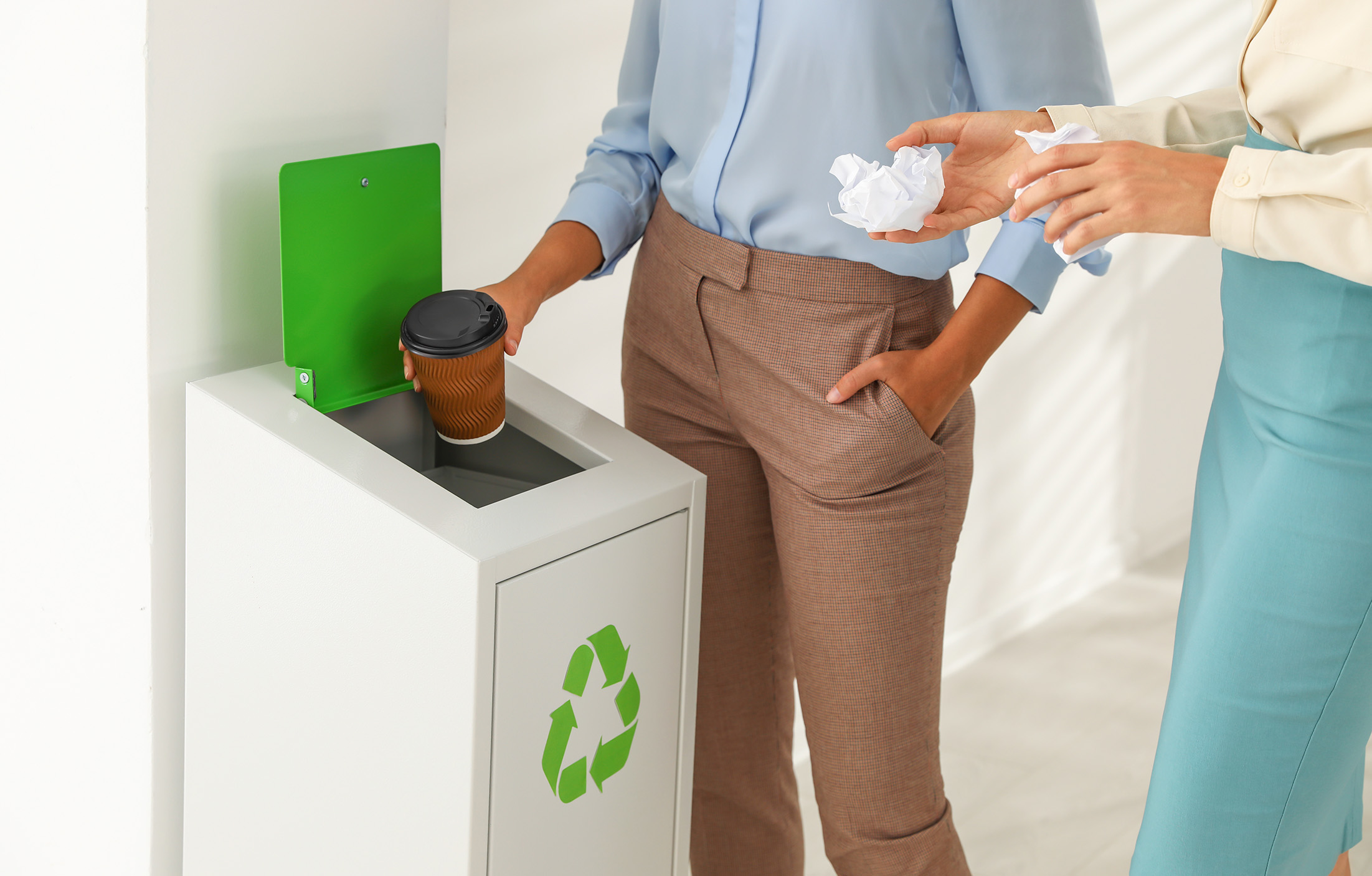
Be Printing Conscious
Americans alone use 67.4 million tons of paper every year. Going paperless is the best way to go but is not always an option. If you must print, reduce paper waste by making a commitment to being printing conscious! Using two-sided printing is an easy way to cut your paper waste in half. Instead of printing extra copies, try to conserve paper by sharing printed documents amongst coworkers or sharing documents electronically.
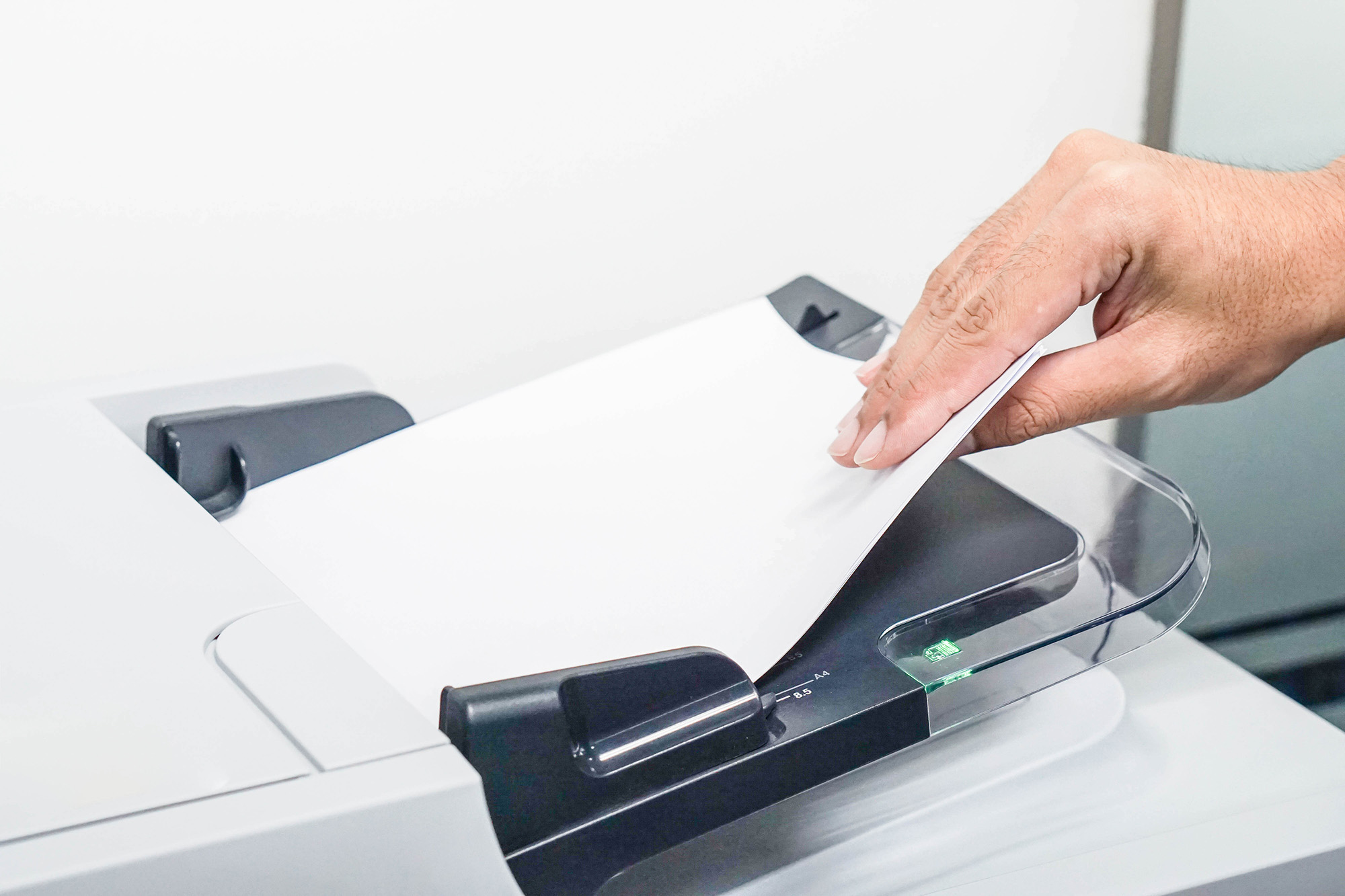
Use Refillable Pens
When we think of single-use plastic, pens usually aren’t the first thing to come to mind. Did you know Americans alone toss away 1.6 million disposable pens every year? This plastic waste ends up in our landfills and often makes it to our waterways, polluting our oceans and harming wildlife. Replace your disposable pens at work with refillable ones. These pens are not only more environmentally friendly, but they last longer for you and your office!
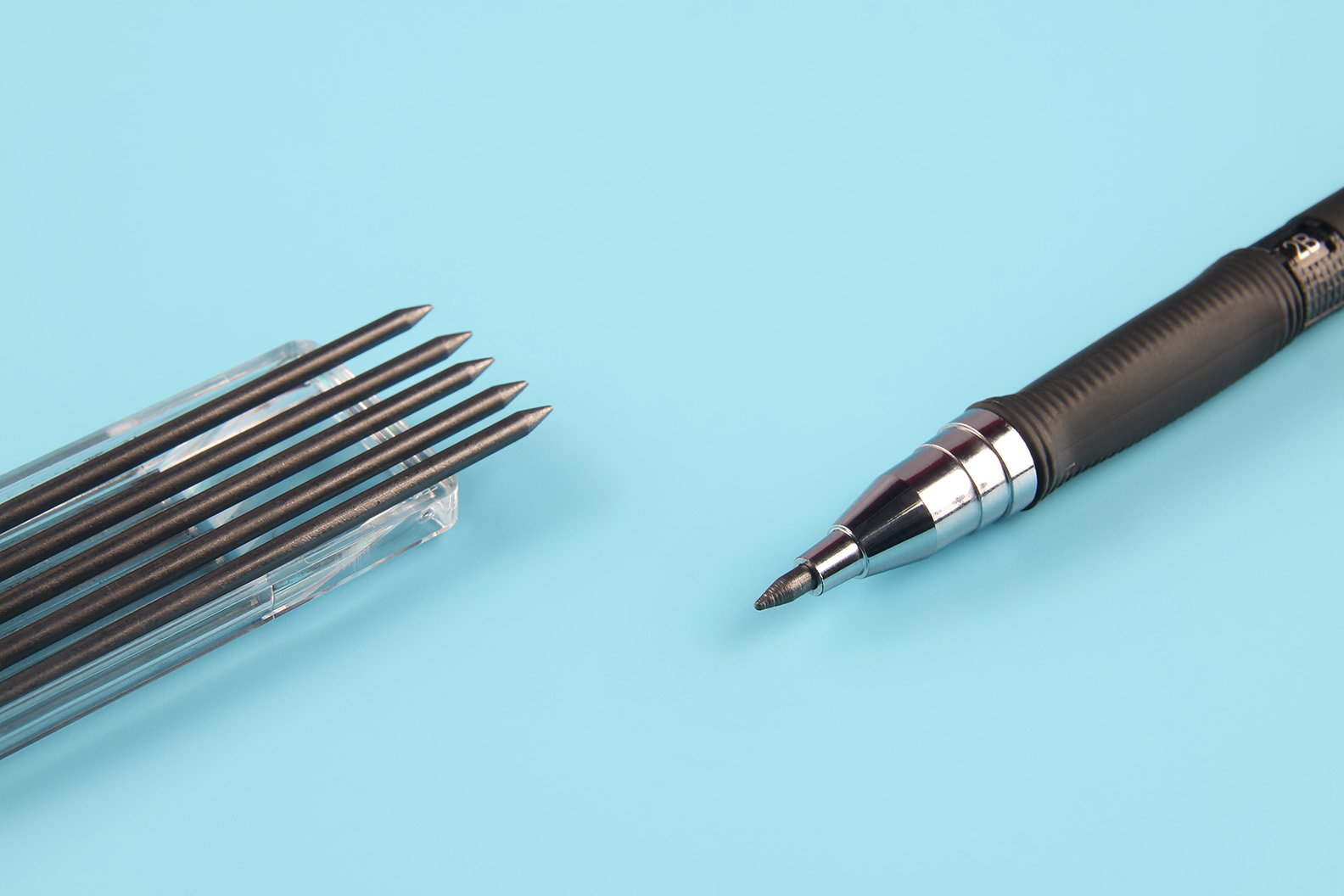
Change the Way You Eat
Every year, 40 billion plastic forks, spoons, and knives are used and thrown away. Instead of using disposable kitchen products, commit to reusable dishware. Bringing your own mugs, cups, bowls, cutlery and Tupperware helps reduce waste and keeps plastic out of our landfills!
 \
\
Unplug
Get into the habit of unplugging cords and turning off electronics that are not in use. This includes fully powering down computers that aren’t being used, unplugging electronics, and turning off extra lights. Saving energy reduces air pollution and conserves natural resources—even computers and devices that aren’t being used, but are still on, contribute to energy usage. This green habit will reduce the cost of your electric bill and will lengthen the life of your electronics and light bulbs. This means that less waste will be generated in the long run and there will be a lower chance that these potentially hazardous materials end up as litter in our storm drains and waterways.
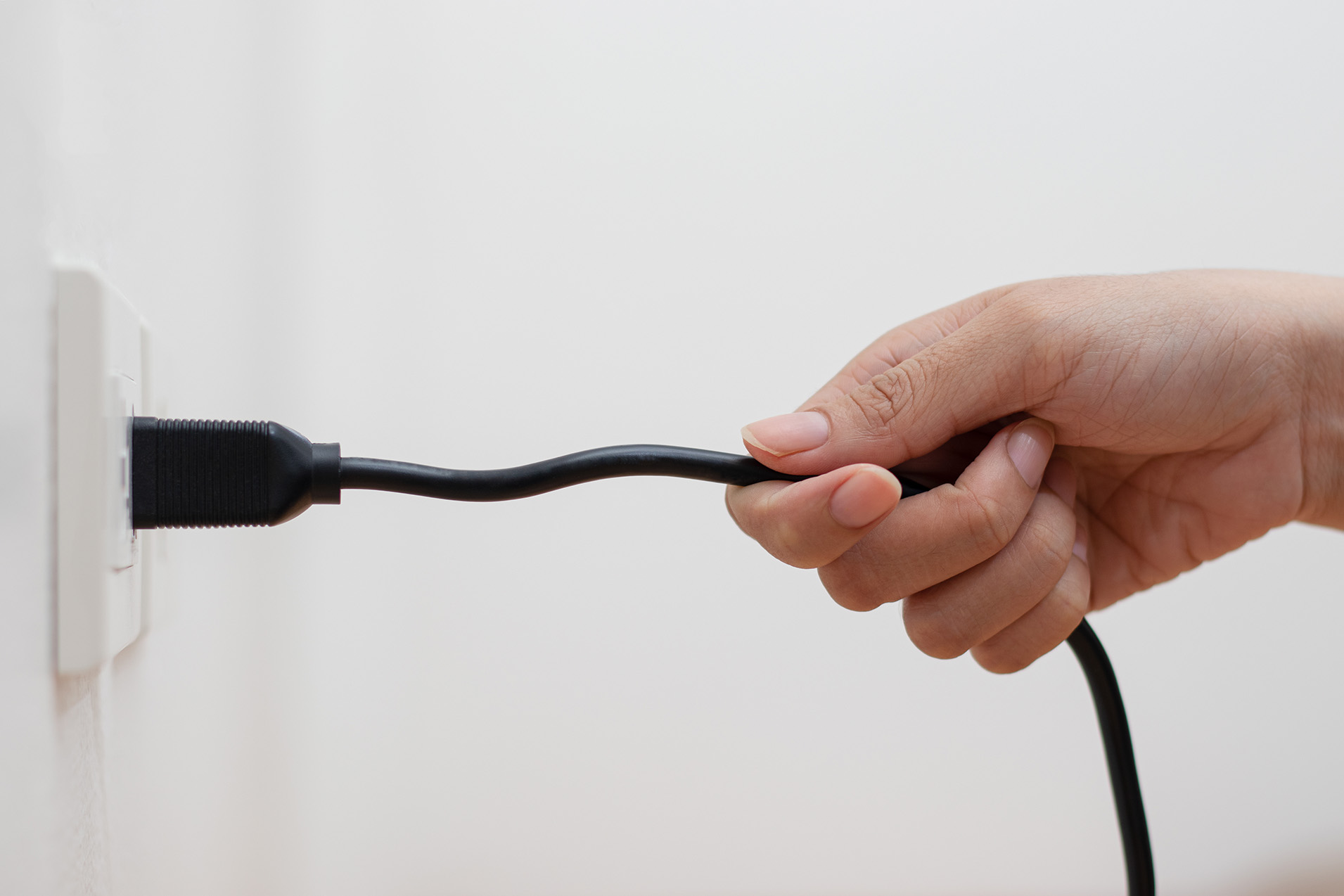
Sources:
United States Environmental Protection Agency – Paper and Paperboard: Material-Specific Data
Earth 911 – Infographic: Pens and Pencils by the Numbers

